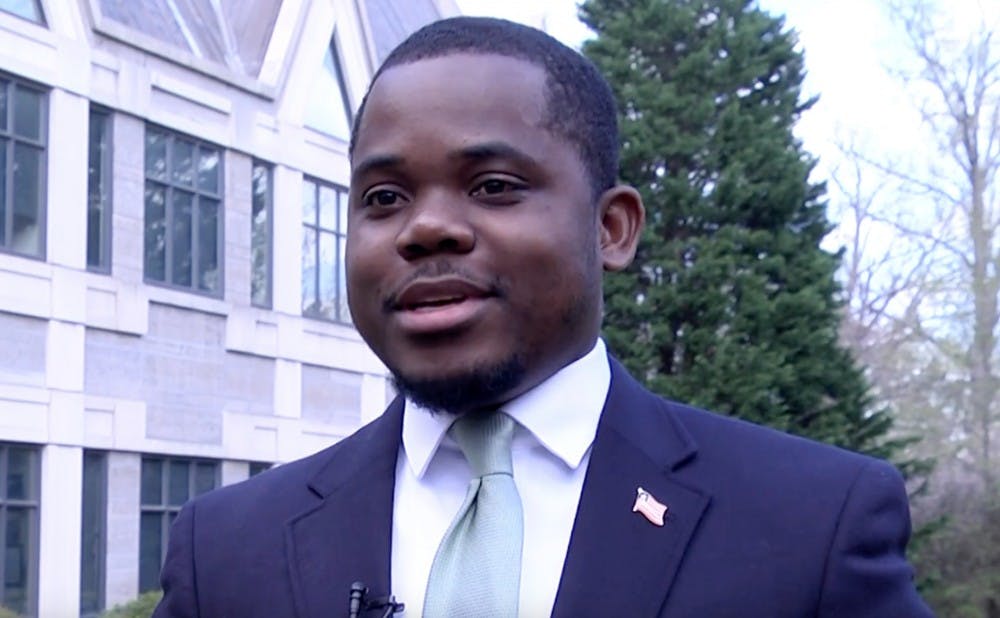Waiting at a gate in Brussels Airport in Zaventem, Belgium, McSwain Forkoh first realized something was wrong when he saw a horde of people running towards him.
Forkoh, a first-year master’s student at the Sanford School of Public Policy, survived the March 22 Brussels Airport bombing, which occurred as he was returning to the U.S. after visiting family in Liberia. During the attack, members of the extremist Islamic State group detonated two deadly bombs in the departure hall of the airport, killing more than 30 individuals and becoming the deadliest terror attack in Belgian history. Initially, Forkoh said he thought that the group of people rushing toward him had missed their flights, but then he heard security personnel shouting orders to run toward the back of the terminal.
“They told us to drop our bags, so I dropped my laptop, my bag, everything,” Forkoh said. “We all started running.”
He said that he kept his phone—which he would later use to contact family and receive updates—and his passport in his pocket. Forkoh’s departure gate was located in a section of the airport across from the check-in counters where the two bombs were detonated.
“I got an alert on my phone from BBC News,” Forkoh said. “At that moment, I realized it was something serious. I was in the midst of a really terrible situation here.”
He described an atmosphere of panic and confusion as he and other passengers were evacuated from the airport following the bombing and waited outside. As the day progressed, shuttles brought those stranded to a holding location, where they were provided blankets, food and phone-charging ports. Forkoh said he was able to contact his mother before she learned about the attacks on the news and loaned his phone to many people who were also trying to assure their families that they were safe.
“A lot of people were coming up to me, panicking,” Forkoh said. “I’m glad to have been helpful this way.”
Although he did not hear the first two explosions, he said he heard police officers destory the third bomb using a controlled explosion. An announcement was made prior to the third bomb’s detonation instructing survivors not to panic.
“The sound was loud. I heard it clearly,” Forkoh said. “It reinforced what I was thinking—it could have been my death that day.”
After realizing that the airport had shut down and he would not be able to leave Brussels, Forkoh said he notified administrators in the Duke public policy program, who put him in touch with the Office of Global Strategy’s global administrative policies and procedures department.
Forkoh praised the department for its prompt response and focus on getting him out of Brussels safely.
“They were highly concerned about my emotional state and letting me know that everybody here was thinking about me,” Forkoh said. “I felt so loved.”
After staying overnight in the nearby municipality of Lo-Renginge, Forkoh eventually boarded a flight leaving Frankfurt, Germany. He arrived back in Durham early Friday morning, approximately three days after the bombings. His belongings remain in the Brussels airport and will be processed when the airport reopens. According to BBC News, however, it could take months for the airport to reopen.
Forkoh added that he has been touched by the outpouring of support and concern from the Duke community since returning. He noted that the empathy of his friends and classmates has helped him return to daily life as a student and undergraduate teaching assistant.
He also expressed support for the Belgian families that had relatives injured or killed in the attack.
“It’s different when you are in the situation,” he said. “You feel grateful that you didn’t get harmed because a lot of people died.”
Get The Chronicle straight to your inbox
Signup for our weekly newsletter. Cancel at any time.

